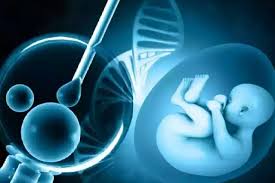A new study reveals that exposure to fine particulate air pollution (PM2.5) during pregnancy can disrupt immune responses, potentially leading to adverse birth outcomes. The research, conducted by scientists at Harvard T.H. Chan School of Public Health and published in Science Advances, represents a significant leap in understanding how air pollution impacts maternal and fetal health.
While previous studies have linked PM2.5 exposure to complications like preeclampsia, low birth weight, and developmental delays in early childhood, this research is the first to explore the effects at the cellular level. Professor Kari Nadeau, Chair of Climate and Population Studies at Harvard, described the findings as “a substantial step forward in understanding the biological pathways by which PM2.5 exposure affects pregnancy, maternal health, and fetal development.”
Examining Cellular Changes
The study involved both non-pregnant women and pregnant women at the 20-week mark. Using advanced single-cell analysis, the researchers examined how PM2.5 exposure modified DNA at the cellular level. Their focus was on histones—proteins that regulate the release of cytokines, which play a crucial role in managing inflammation.
The results showed that PM2.5 exposure alters histone profiles, disrupting the normal balance of cytokine genes. This imbalance leads to increased inflammation, which was observed in both pregnant women and their fetuses. Heightened inflammation during pregnancy has been associated with complications that can adversely affect both maternal and fetal health.
Implications for Maternal and Fetal Health
The findings underscore the urgent need to minimize air pollution exposure for pregnant women. Elevated inflammation caused by PM2.5 exposure not only poses risks during pregnancy but could also have long-term implications for the child’s development.
The study’s innovative methodology also sets the stage for future research. “This changes how we study immune responses to environmental exposures,” said Professor Nadeau.
Call for Action
The researchers are calling for policy interventions to improve air quality and provide guidelines for pregnant women to reduce their exposure to harmful pollutants. Public health measures, including stricter air quality standards and educational campaigns, could play a critical role in safeguarding maternal and fetal health.
As air pollution continues to pose a global health challenge, the study highlights the importance of integrating environmental health into maternal healthcare practices and policies.












